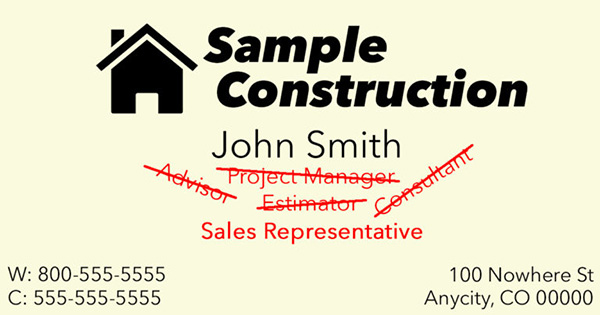Five Key Provisions in a Residential Roofing Contract

Contractors should routinely review their roofing contract to make sure that it contains the most current terms and that the terms are enforceable.
By Trent Cotney
In these tough economic times, a contract can be a roofer's best friend because it will contain terms that will assist the roofer in collecting money or defending claims. Although this article will not discuss all the provisions needed in a residential roofing contract, it will focus on five important provisions that every residential roofing contract should include.
1- Scope of Work Provisions - The majority of litigated disputes arise out of or relate to problems with the scope of work. Often, contractors are seeking payment for extras that were not originally contemplated in the contract. However, the homeowner may believe that the contract included all roofing work to be performed on the project.
For example, a roofing contractor that is providing a new roof for a homeowner may encounter rotted decking that needs to be replaced. The contract does not specifically detail the cost or price for replacing the rotten wood. The roofing contractor incurs another $2,000 in deck replacement and seeks to charge the homeowner for the additional charge. The homeowner objects stating that the contract did not mention that the decking would be an extra charge.
This example demonstrates the need to specifically define the scope of work for a roofing project. If replacement of decking, fascia, soffits and other work are extras, the contract needs to not only state that those items will be extra charges but indicate the method of pricing for the additional work (e.g., time, materials). It is also important to note the nature and limits of any workmanship warranties provided by the roofing contractor to the homeowner. The homeowner may misconstrue the scope of warranty work if it is not specifically spelled out in the contract documents.
Florida law requires that several statutory warnings be included in residential construction contracts. For residential roofing, these warnings may include the lien law notice, the opportunity to cure notice and the Florida Homeowners’ Construction Recovery Fund notice.
The lien law warning provides notice to the owner that if the owner does not pay for the work performed, then the contractor may be able to lien the owner's property. This lien law warning can be found in Section 713.015, Florida Statutes and has been modified many times. In fact, the format of the warning may change again after the latest Legislative session. Failure to include the lien law warning may result in the contractor potentially losing its lien if the owner can demonstrate that he/she was prejudiced by not receiving the notice in the contract.
The opportunity to cure notice can be found under Section 558.005, Florida Statutes, and requires that an owner contact a contractor no later than sixty (60) days prior to filing suit in an attempt to give the contractor an opportunity to cure any construction defects. The notice must be included within the contract itself in order for the contractor to use the remedies contained therein.
Finally, the Florida Homeowners’ Construction Recovery Fund ("Fund") requires that a notice be given to residential owners in the construction contract so that they may contact the fund with a potentially covered claim. The notice language can be found in Section 489.1425 Florida Statutes and must contain the contact information for the Fund.
2 - Notice Provision - All residential roofing contracts should contain a notice provision which requires that the owner notify the contractor of any defects or claims within a certain time period. The notice provision must be clear and unambiguous and should also provide that failure to provide the contractor with notice results in the owner waiving any damages arising out of that claim. The courts have strictly construed these notice provisions and have required that the contractor provide the owner with a reasonable period of time to notify the contractor. All notice provisions should require that the notice be provided in writing to avoid confusion.
3 - Attorney's Fees Provision - All residential construction contracts should contain an attorney's fees provision which allows the contractor to obtain attorney's fees in the event it has to seek payment or defend claims against the owner. An attorney's fees provision not only provides the contractor (especially contractors who perform work in more than one county) with the opportunity to collect its attorney's fees, but also gives the contractor's attorney an additional settlement tool that may encourage an owner to settle because of the risk of the owner having to pay for the contractor's attorney's fees.
4 - Venue Provision - Contractors (especially contractors that perform work in more than one county) should include a venue provision in their residential roofing contract. The venue provision governs where a case can be brought based on the contract. For example, assume you are doing work in Orange County, Florida but your venue provision provides that you can only sue or be sued in Dade County, Florida where your main office is located. If a dispute arises out of the contract and the venue clause is specifically worded, the owner will have to sue you in Dade County and not Orange County, Florida. Obviously, this is beneficial for the contractor because the contractor has less travel expense and may be able to use local contacts for expert witnesses.
5- Disclaimers - Residential roofing contracts should contain disclaimers to state that the contractor is not liable for certain pre-existing conditions. Disclaimers can cover a wide variety of problems including mold, termites, dry-rot, and mildew. The purpose of these disclaimers is twofold: first, it allows the contractor to disclaim liability for certain pre-existing conditions and second, it helps educate the owner about the existence of pre-existing conditions. In conjunction with doing any residential roofing project that has pre-existing conditions, a residential roofing contractor should consider taking photographs or video of damaged areas to later prove the existence of pre-existing conditions.
Contractors should routinely review their contract to make sure that it contains the most current terms and that the terms are enforceable. This article has touched on a few of the more important provisions to include in residential construction contracts. However, depending upon the nature of your work and the geographic location, there may be additional terms worth considering. Your residential roofing contract should be viewed as a helpful tool providing you with terms necessary to seek payment and to defend claims against owners if necessary.
Author’s note: The information contained in this article is for general educational information only. This information does not constitute legal advice, is not intended to constitute legal advice, nor should it be relied upon as legal advice for your specific factual pattern or situation.
Trent Cotney is Florida Bar Certified in Construction Law, a member of the National Roofing Contractors Association (NRCA), General Counsel and a director of the Florida Roofing Sheet Metal and Air-Conditioning Contractors Association (FRSA), General Counsel and member of the Governance Committee of the National Women in Roofing (NWIR), the Treasurer of the West Coast Roofing Contractors Association (WCRCA) and affiliated with almost a dozen other roofing associations. For more information, contact the author at 866-303-5868 or visit www.RoofingLawyer.com.























Comments
Leave a Reply
Have an account? Login to leave a comment!
Sign In